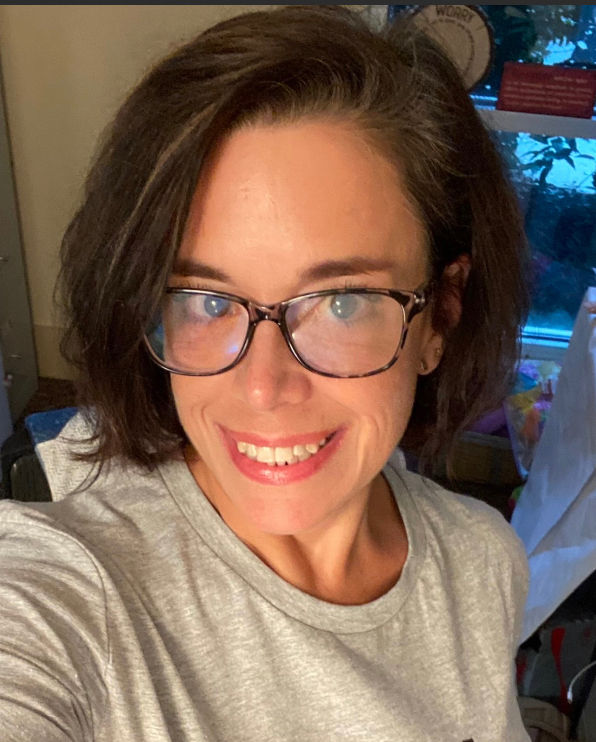2019 Root Cause Summit Spotlight: Ronda Alexander
- Networks of Opportunity
- Aug 23, 2019
- 4 min read
August 23, 2019
The Root Cause Coalition's Presenter Spotlight Series highlights the dozens of leaders dedicated to achieving health equity who will present their ideas at the 2019 National Summit on the Social Determinants of Health in San Diego, California on Oct. 20-22, 2019. Register now to reserve your place at the Summit. The NOW team's very own Ronda Alexander was recently featured -- read on to learn more about Ronda's journey.
The original version of this post was published by the Root Cause Coalition and can be accessed here.

Ronda Alexander, Director of Operations- Project NOW, Boston Medical Center- The Vital Village Network
The old African proverb that it takes a village to raise a child could not be truer for those children who grow up in underserved communities.
Social determinants may make it difficult for parents to provide their children with what they need to live healthy lives, and that is why the intervention of the community is so important to a child’s development. When parents from underserved communities are occupied with day to day survival, it is the community organization’s responsibility to provide resources for a child’s progress over a lifetime.
It is challenging, but community leaders like Ronda Alexander are committed to the work. Alexander is the Director of Operations for Project NOW (Networks of Opportunity for Child Wellbeing), an initiative of Boston Medical Center’s Vital Village Network. The Vital Village Network is comprised of residents and organizations that create initiatives to ensure child wellbeing. Project NOW, funded with a strategic planning grant from the Robert Wood Johnson Foundation, works with 10 other coalitions across the country with an objective of building capacity and dignity for children. The Project works to engage, align and leverage relationships with municipal partners.
During the application process to join Project NOW’s coalitions, each applying organization is asked, “How do you want your community to be different as a result of your coalition’s work?” By knowing what their goals are and where they plan to start, Alexander and her team can provide the organizations with governance, structure and technical resources. Part of these technical resources include an online forum where communities can share procedures and discuss what is unique about the work they do in their own voice, “(By) using both quantitative and qualitative data to tell the story of what’s happening in their communities…telling stories that are counter to the traditional stories that are told about poor communities or communities of color that tend to focus more on a deficit model,” Alexander said. She meets with representatives from each of the coalitions every month to discuss their progress and examine the benchmarks they’ve each set for the children living in their community.
Having conversations with these communities can help break down unforeseen challenges such as a lack of perspective from the servicer. Alexander believes it’s important to identify and understand our own privileges and assumptions when working with the public. “How (do) we become aware of (privilege) and then begin to shift our actions and our practicing to make sure that we are honoring the dignity of those we are trying to serve,” she said.
Alexander frequently considers this question as a parent herself. “How am I treating my child with dignity? How am I honoring who she is and allowing her to be who she is and not be a victim of the experiences that I’ve had?”
It all goes back to conscious interventions and mindful relationship building. Alexander said one of the organizations in the Project NOW coalition experienced that challenge entering the community they were intended to serve with preconceived notions of how to fix an issue. They began a project with a checklist, but because they did not have a good relationship with those in the community, all the initiatives had to be shelved while they worked on building a relationship and establishing trust. This was a lesson to, “Slow down and focus on the people they intend to serve and their users rather than their need to check something off the list,” Alexander said. “It’s not about what you’re offering or what you can do but it’s about spending time to understand their needs and desires.“
Prior to joining the Vital Village Network, Alexander spent 9 years with the Ford Motor Company Fund on an education initiative to bring employees, communities and educators together to support children in high schools. She, “Helped communities take ownership of what it means to help students graduate from high school and the tools they needed to be successful in college and career.” Student success was not only the responsibility of parents, educators or businesses but it was a collective effort of all three. It was important to create an experience and a space where they could all work together. “It was communities taking ownership of what it meant for their communities to thrive.”
Alexander has a passion for, “Communities that are often ignored, marginalized or studied but not really supported.” At this year’s Summit, she will join presenters in the Lifespan Track Breakout Session, “Fostering New HOPE: Advancing Child and Family Health Equity in States and Communities.” She will explain the intersection of health equity and child wellbeing at the state and community level to examine what support looks like for those in underserved communities who deserve programs that support their dignity.
“I think often when we think about dignity we think about dignity for other adults but if our work is around child wellbeing, what does it mean to treat a child with dignity?” Alexander asks. “What does dignity look like for a child?”








Comments